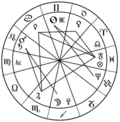Throughout the history of mankind, one of the main objectives of the human race, if not the core one behind every other objective, has been to attain happiness.
In fact, Aristotle stated that happiness is the only thing that humans desire for its own sake. He observed that men sought riches not for the sake of being rich, but to be happy. Those who sought fame desired it not to be famous, but because they believed fame would bring them happiness.
But what is happiness?
The dictionary says happiness is:
1. joy, the emotion of being happy.
2. Good luck; good fortune; prosperity.
3. An agreeable feeling or condition of the soul arising from good fortune or propitious happening of any kind; the possession of those circumstances or that state of being which is attended enjoyment; the state of being happy; contentment; joyful satisfaction; felicity; blessedness.
But what is it that makes us happy?
Some of the states associated with happiness include success, delight, health, safety, contentment, wealth, fame and love.
But still, being wealthy, healthy, loved, safe or the whole lot together doesn’t guarantee a person to be happy.
Happiness, I think, is unquantifiable and undefinable, because we don’t know what will really make us happy; we do things to reach certain goals in an attempt to gain happiness, but it’s not always the case, and we often find ourselves reaching goals that do nothing for us.
On the other hand, some things as small as a child’s smile, a word from the heart, a passing thought, a nod of appreciation, a moment for yourself can make you feel happy.
Happiness is complicated and simple at the same time, depending on how a person looks at life, I guess.
“How simple and frugal a thing is happiness: a glass of wine, a roast chestnut, a wretched little brazier, the sound of the sea… All that is required to feel that here and now is happiness is a simple, frugal heart.”
— Nikos Kazantzakis, Zorba the Greek
It’s also impossible to define happiness because it’s different for every single person.
Happiness to me is being with my wife and son, a fruitful fulfilling day at work, knowing that my close family are doing well, coming up with a new cool idea, reading a good book, taking a dip in a beautiful cold clear-watered sea, being able to indulge in one of my favourite pass-times, treating myself or my small family to some the things we want… and the list goes on… and to me, happiness obviously lies in the small details and things of life.
What is happiness to you?
 I don’t believe in Astrology, not one tiny bit, I think it’s total crap and nonsense, but I don’t care if others around me do, and I don’t give them a hard time for it.
I don’t believe in Astrology, not one tiny bit, I think it’s total crap and nonsense, but I don’t care if others around me do, and I don’t give them a hard time for it.